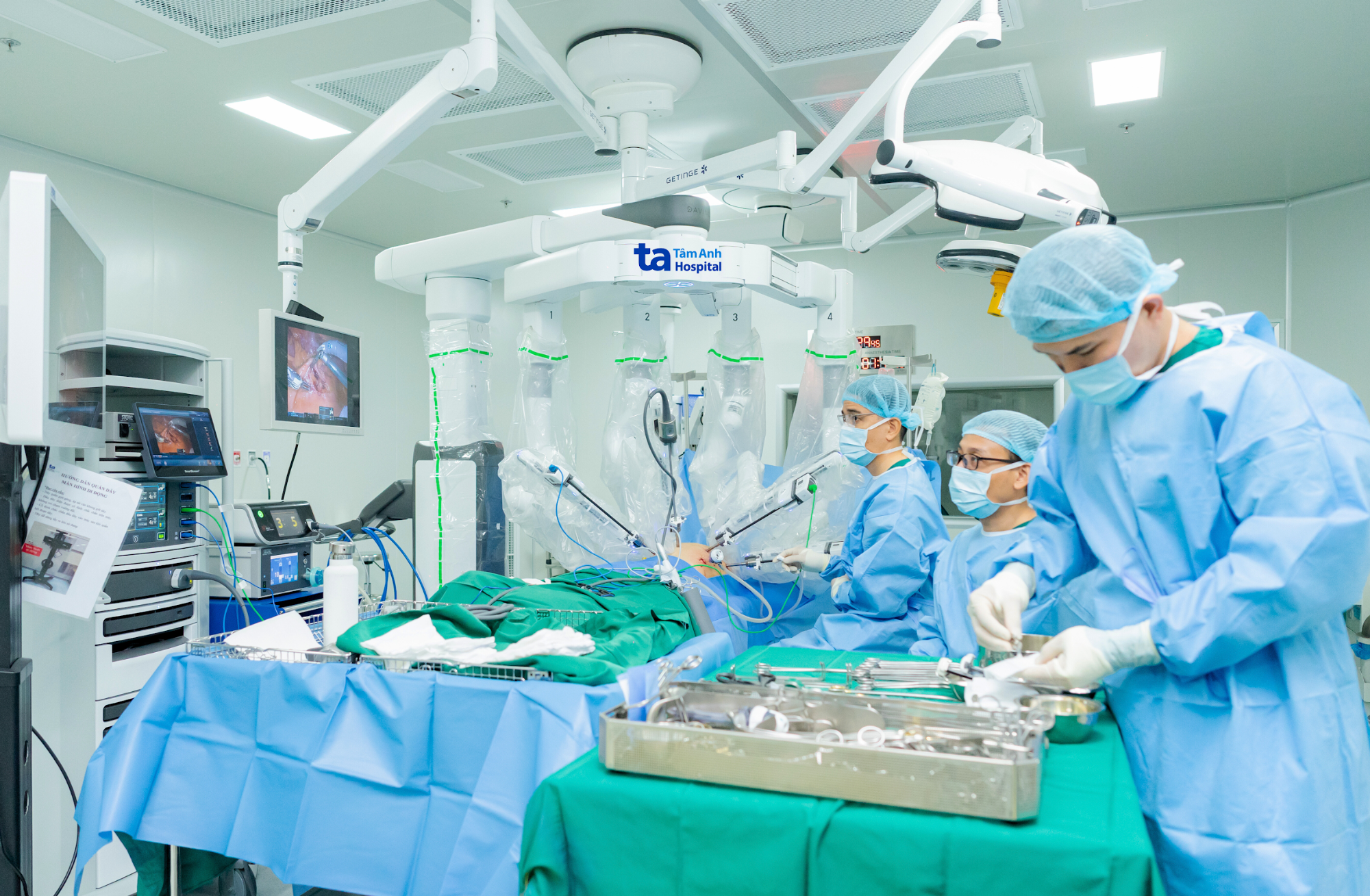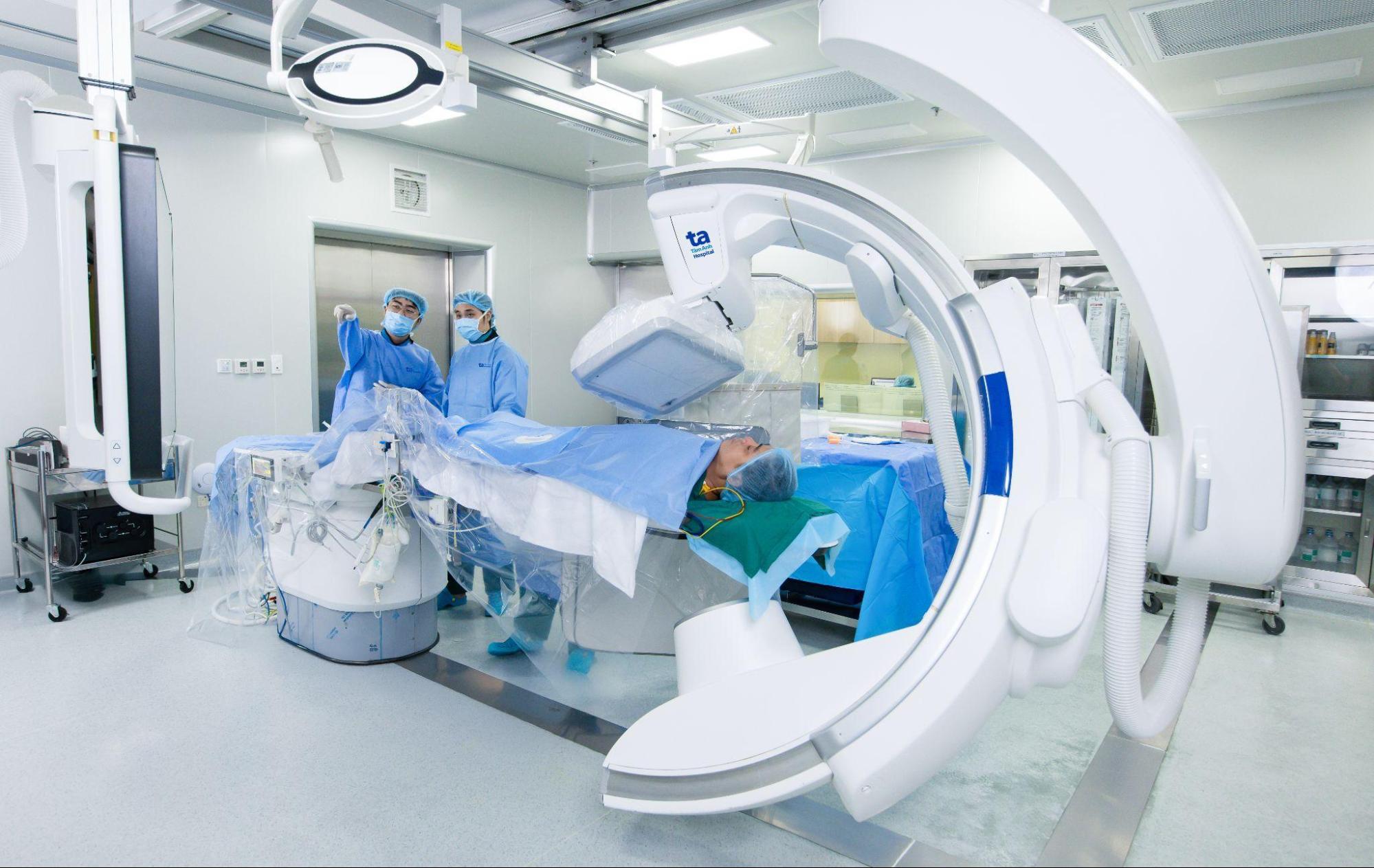The Departments of Health in Hanoi and Ho Chi Minh City announced this ranking on 9/7. On a 1,000-point scale, Tam Anh General Hospital in Hanoi scored 968 points, leading both public and private healthcare facilities. Tam Anh General Hospital in Ho Chi Minh City achieved 962.57 points, ranking first among private hospitals and third overall in the city.
This ranking is based on six criteria: actual hospital operations; quality assessment based on established criteria; patient and staff satisfaction surveys; implementation of plans and directives from the Ministry of Health and the Departments of Health; and responsiveness to official correspondence for management purposes. A key change in this evaluation was the simultaneous application of the Vietnamese Hospital Quality Criteria (83 points) and the Basic Hospital Quality Criteria issued with Circular 35 by the Ministry of Health, effective from 1/1.
In Ho Chi Minh City, 124 hospitals and medical centers were assessed, including 27 facilities from Binh Duong province (formerly) and 14 from Ba Ria - Vung Tau province (formerly). This time, the Department of Health did not assess nine hospitals under the Ministries of Health, Defense, and Public Security, along with seven private hospitals established within the past 12 months.
In Hanoi, the Department of Health assessed 33 out of 85 hospitals and medical centers. The assessed facilities included 15 public hospitals, 15 private hospitals, and three hospitals under other ministries and sectors.
In Ho Chi Minh City, the Department directly surveyed Tam Anh General Hospital between March and June. The evaluation process was transparent, involving direct interviews with patients or their families, and 2,000 medical staff who answered questions from the Department via QR code scans. The evaluation at Tam Anh General Hospital in Hanoi took place between April and June, surveying 30% of outpatients and 65% of inpatients.
Regarding quality, Tam Anh General Hospital in Ho Chi Minh City scored 4.74 out of 5. Patient satisfaction for both outpatients and inpatients reached the highest possible score of 5, while staff satisfaction was 4.85. Meanwhile, patient satisfaction at Tam Anh General Hospital in Hanoi reached 99.5%, and staff satisfaction reached 100%.
In terms of equipment, Tam Anh General Hospital in Ho Chi Minh City achieved a perfect score of 5 out of 5. The hospital has invested in high-tech equipment, successfully implemented robotic neurosurgery, and has been recognized and licensed by the Ministry of Health as a training center for AI-assisted robotic cranial and spinal surgery for other facilities. Among its advanced technologies, the Modus V Synaptive next-generation surgical robot uses AI and has assisted in hundreds of cases involving brain tumors, hemorrhagic stroke, and spinal nerve conditions (herniated discs, spondylolisthesis, spinal stenosis, spinal cord tumors, and sciatica). The Da Vinci Xi Robotic Surgical System (USA) supports over 120 complex surgical procedures, ranging from prostate, kidney, lung, uterine fibroid, and rectal cancer removal to thyroid and mediastinal tumor removal.
 |
The Da Vinci Xi robot assists in surgery. Photo: Tam Anh |
In the field of diagnostic imaging, the hospital boasts a 1975-slice CT scanner imported directly from the US, offering high speed, high resolution, and the ability to detect micro-lesions as small as 0.23 mm. The 3.0 Tesla SIGNA™ Hero MRI machine (USA) utilizes AI to support early detection of neurological, musculoskeletal, and cardiovascular diseases.
The Somatom Force VB30 CT scanner (Germany) can reconstruct over 100,000 slices, scan the entire body in 1-2 seconds with 0.4 mm thin slices, and detect micro-lesions early. AI automatically analyzes images, assisting doctors in accurately identifying abnormalities, especially tumors and cancers at very early stages, with an 85% reduction in radiation dose, making it suitable for children, the elderly, and those with underlying health conditions.
 |
The Philips Azurion Robotic Ceiling FlexArm digital subtraction angiography (DSA) system with robotic arm provides comprehensive information on vascular abnormalities. Photo: Tam Anh |
Tam Anh General Hospital has also invested in comprehensive digitization, applying information technology in management and services. It is the first private hospital in Ho Chi Minh City to be recognized for its comprehensive electronic medical record implementation.
In terms of patient rights and benefits, the hospital scored 80 out of 111 points. Earlier in January, Assoc. Prof. Dr. Tran Quang Binh, Medical Director of Tam Anh General Hospital in Ho Chi Minh City, stated that the system is classified as a specialized (tertiary) hospital, receiving patients from all levels for treatment of rare and complex diseases without requiring referral letters, while still ensuring full health insurance coverage. This allows patients to access specialized, high-tech medical care cost-effectively when treating complex and rare diseases, without needing to seek treatment abroad as before.
Thien Ha












